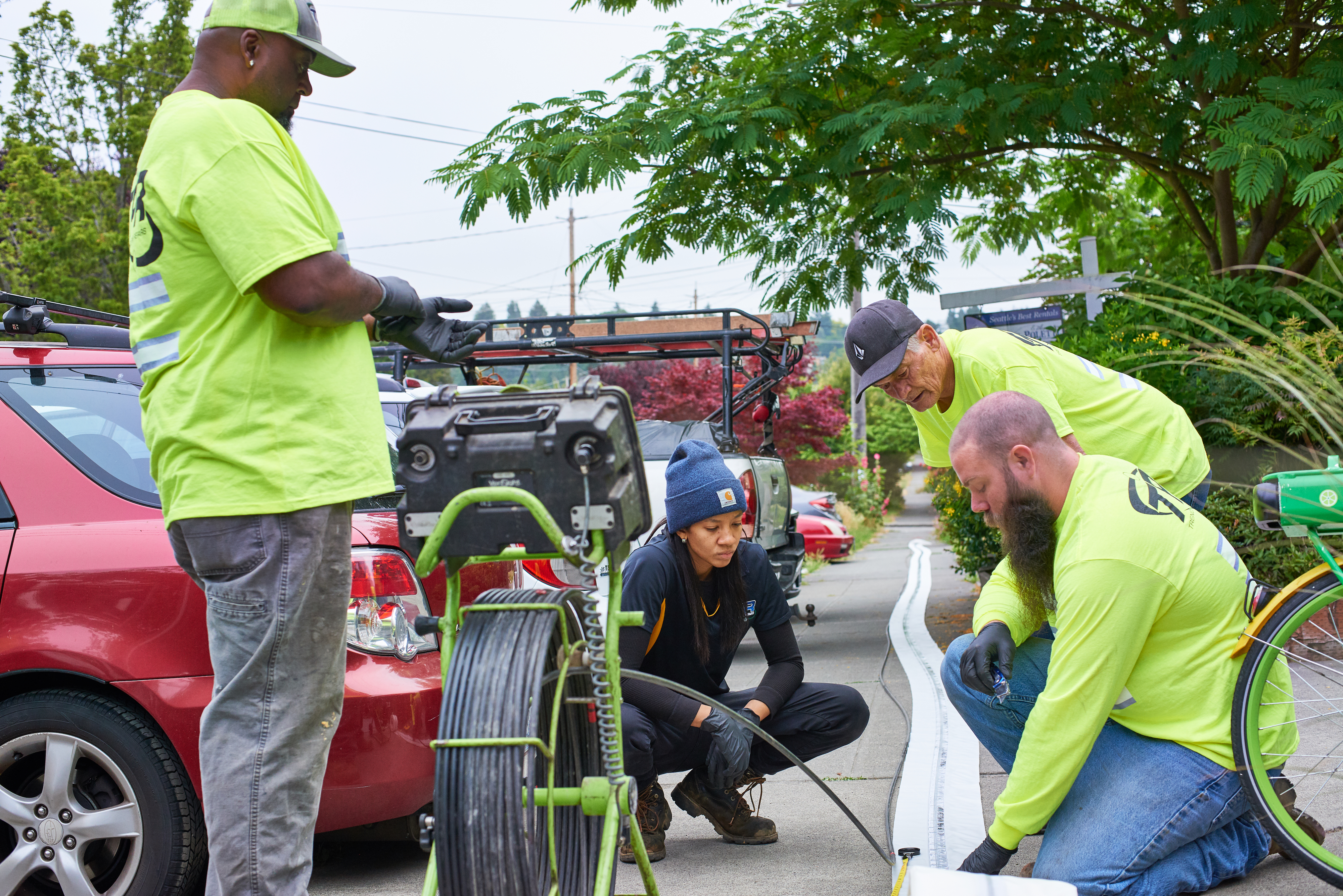Most work in the wastewater industry, from sewer inspections to pipe rehabilitation projects, requires teams of people to complete. Crews that have a strong team dynamic and foster collaboration are more effective and efficient at their jobs. But if your employees are struggling to work together, a few key strategies can steer them towards cooperation.
.jpg?width=467&name=PRT_06022019_0028%20(1).jpg)
1. Establish a clear company goal and overall message.
Employees should be clear on their employer’s expectations, and also why they’re doing the work. This helps your crew not only understand how the work they’re doing is expected to result in success for the company—whether success means taking on more jobs, or completing existing ones more efficiently—but also enables them to work together to accomplish these goals.
By understanding the company’s goals, team members can also play a role in providing feedback and ideas to improve the process for achieving them.
2. Develop goals for the team and provide incentives for reaching them.
Line up clear goals for your team. Whether you track a weekly, monthly or annual sales goal, or even focus on completing a wider range of inspection and rehab projects than the previous year, the objectives should be laid out clearly. Team-wide goals promote collaboration, and providing incentives to complete the goals can motivate employees.
Consider offering public recognition—presenting employees with a certificate of achievement; a raise, bonus or gift; or an appreciation incentive such as a paid group lunch or company activity.
3. Encourage and foster innovation in the workplace.
Success in the wastewater industry requires adaptability. New technologies bring new ways of completing inspection and rehabilitation projects, so industry professionals may periodically need to learn new methods or techniques. Encourage team members to share ideas to simplify or improve their work. The ideas of members of your crew who are actually out in the field seeing what works well and what doesn’t should be valued.
Some ways for employers to foster innovation in the workplace include presenting employees with new opportunities or projects and talking with employees to ensure the company is providing them the resources and time they need for their work.
4. Promote and practice strong communication.
When employees feel they can openly communicate with their coworkers, managers and supervisors, the workplace is more productive as a whole. While working collaboratively, teams with stronger communication will inevitably be able to complete jobs more efficiently.
Having strong communication in the wastewater industry also helps to ensure safety. Teams often complete strenuous and lengthy projects in the field. When workers communicate their needs and concerns, they are better prepared to support, protect and look out for one another on the job.
5. Leverage team member strengths.
Leveraging different team members’ strengths can help to improve the group’s productivity. Rather than dwelling on weaknesses, focus on areas of expertise and use those to build a dynamic team that holds a space for different individuals.
Some workers may be stronger communicators, others more detail-oriented inspectors, so using their advantages to create a well-rounded team means everyone plays an important part and in turn encourages collaboration.
Stay in the loop about industry news, best practice and trends from PRT by subscribing to our email list:


